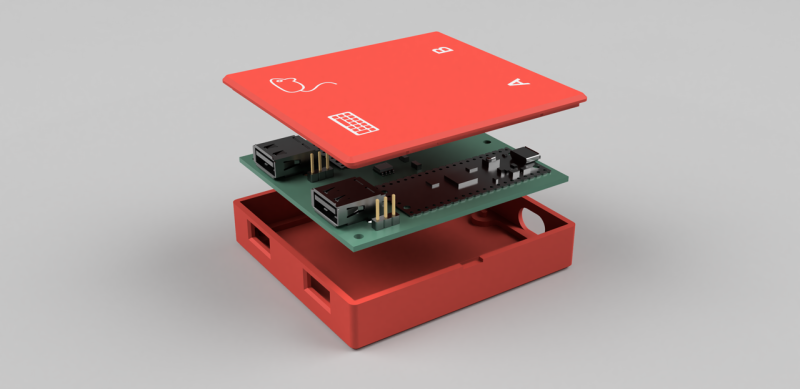
Switching inputs between desktops seems like something that should be simple but can prove to be a pain in reality. [Hrvoje Cavrak] decided to take maters into his own hands and build a better keyboard and mouse switch.
DeskHop is built from two Raspberry Pi Pico boards connected via UART and separated by an Analog Devices ADuM1201 dual-channel digital isolator. Through the magic of Pico-PIO-USB these RP2040s can be both host and device. To keep things simple the PCB is single-sided, and the BOM only has five distinct components.
Once hooked up to your Windows, Mac, or Linux device, your mouse pointer “magically” goes from one screen to the other when dragged across the screen edge. Keyboard LEDs can be reprogrammed to indicate which device is active, and the real beauty of the device is that since it’s a hardware solution, you don’t have to install any software on a computer you might not have admin access to.
If you want to see some more ideas for keyboard and mouse switching, checkout this Pi KVM with ATX signalling, this USB triplexer, or this Pi KVM on a PCIe card.
Building a Better Keyboard and Mouse Switch
Source: Manila Flash Report
0 Comments